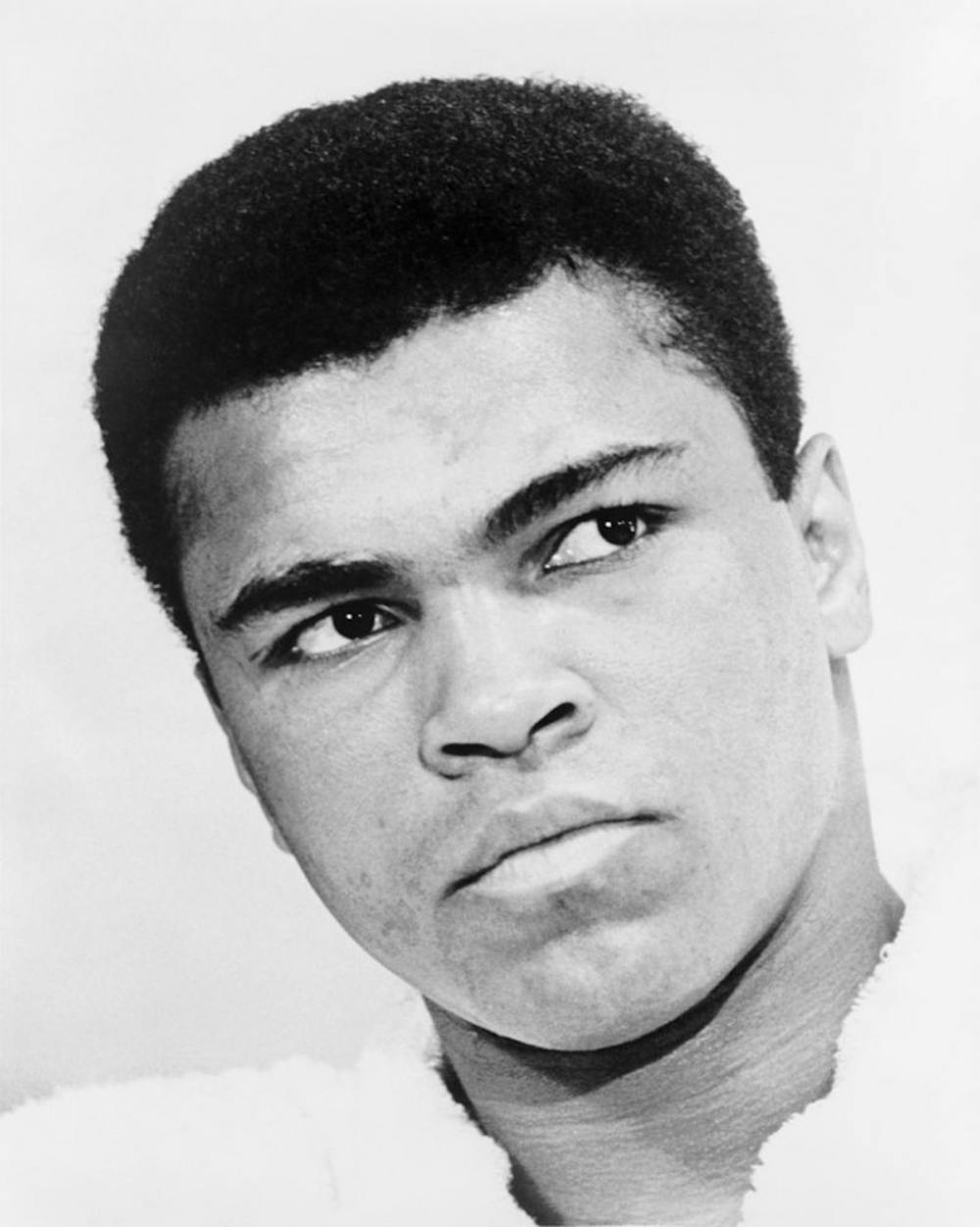"He who is not courageous enough to take risks will accomplish nothing in life" – Muhammad Ali.
Courtney of BrainyQuote.
Muhammad Ali, the three-time world heavyweight boxing champion and one of the most celebrated sports figure of the 20th century, died June 3 at the age of 74. Ali fought Parkinson’s disease for more than 30 years.
Ali was not only a famous athlete, he was also a philanthropist and social activist.
Below is an outline of his life and accomplishments.
1942
Born as Cassius Clay, Ali was born in Louisville, Kentucky in January 1942.
1954
At 12 years old Clay started boxing after his $60 red Schwinn bicycle was stolen off a downtown street, he previously told The New York Times. He reported the theft to Joe Martin who was a police officer who ran a boxing gym. When Clay boasted what he would do to the thief when he caught him, Martin suggested that he first learn how to punch properly.
1954 to 1960
Clay wins six Kentucky Golden Glove championships, two national Golden Glove championships and two AAU titles from 1954 to 1960, becoming one of the most anticipated amateur athletes in the country.
In 1960, 18-year-old Clay wins the light-heavyweight gold medal the the Summer Olympics in Rome.
1960 to 1963
He wins 19 total bouts between 1960 and 1963 setting up his first title shot against Sonny Liston in 1964.
1964
Clay challenged Sonny Liston for the WBA world heavyweight title. Clay, by technical knock out defeats Sonny and became the heavyweight champion of the world calling himself, “the greatest.”
Clay then joined the Nation of Islam and began going by the name of Cassius X before changing his name again to Muhammad Ali.
1965
Ali challenged Liston again to prove he was “the greatest." On May 25, Ali becomes the first man to defeat Liston by knockout, defending his title with a controversial right hand in the first round, as reported by The Washington Post. Liston went down so quickly, some critics believed the match was fixed.
1966-1970
Feb. 17, 1966, Ali found out he had been classified as 1A by his Louisville selective service board and was ordered to be deployed and serve in Vietnam for the U.S. Military.
In 1967, Ali refused to be drafted and said he was a practicing Muslim minister with religious beliefs that prevented him from fighting. Ali requested conscientious-objector status and as a result, he was denied and The WBA immediately stripped Ali of the heavyweight title, and the New York State Athletic Commission revoked Ali’s boxing license.
He did not fight again until he was almost 29.
Even though a jury found him guilty against the charge of violating the Universal Military Training and Service Act because of his refusal to be inducted, Ali continued to appeal and fight back.
Some still call him a "draft-dodger," but Ali continued to voice his objections on college campuses and on television, most notably in interviews with sportscaster Howard Cosell, while campaigning to be reinstated and allowed to box again.
In January of 1970, Ali wins an appeal to have his boxing license reinstated, but it took more than three years before another boxer agreed to fight him.
1971
During the time Ali was stripped of his title, boxer Joe Frazier became very popular in the world of boxing. To reclaim his title, Ali took on Frazier in what has been called the "Fight of the Century,” according to biography.com. Frazier and Ali went toe-to-toe for 14 rounds before Frazier dropped Ali with a vicious left hook in the 15th. This was Ali’s first professional loss after 31 wins.
1974
Ali took on Frazier again and won.
Ali then boxed undefeated heavyweight champion George Foreman which was billed as the “Rumble in the Jungle.” He baited Foreman into throwing wild punches with his "rope-a-dope" technique, before stunning his opponent with an eighth-round knockout to reclaim the heavyweight title, according to biography.com.
1975
Ali took on Frazier again in a fight billed “Thrilla in Manila.” Ali rallied in the 14th round against nemesis Joe Frazier, winning the trilogy when the man he had verbally tormented for so long had been sufficiently bloodied, as reported by The Washington Post.
“It was a war,” the Associated Press wrote, “and Ali fired the most accurate and telling shots as he pounded and pounded rights and lefts to Frazier’s head in the 13th and 14th rounds that closed the challenger’s eyes and had him reeling.”
1978
Ali faced Leon Spinks, who he famously underestimated. Spinks had just seven professional bouts under his belt entering, outmaneuvers Ali and wins a split decision to take the heavyweight title from the champ, according to The Washington Post.
Seven months later, Ali fought Spinks again in a rematch and defeated him. He became the first fighter to win the world title three times.
1980
Ali stayed out of the ring for two years but ends a brief retirement to try and reclaim the WBC title again which he lost in a fight against Larry Holmes.
1981
Ali finished his professional career with a record of 56-5-0, with 37 knockouts and was knocked out just once in a two-decades long professional career.
1984
Ali was diagnosed with Parkinson’s disease.
1990
Ahead of the Gulf War, Ali travels to Iraq to negotiate with Saddam Hussein for the release of U.S. citizens taken hostage after the invasion of Kuwait, according to the Washington Post. Ali brings home 15 hostages.
1996
Ali lights the Olympic flame at the Atlanta Games.
2005
Calling him the greatest boxer of all time, President George W. Bush presented the Medal of Freedom to Ali in a White House ceremony, according to biography.com.
Ali also opened the Muhammad Ali Center in Louisville, Kentucky.
2016
Muhammad Ali passed away on June 3 in Phoenix, Arizona from septic shock due to unspecified natural causes, a family spokesperson said.





